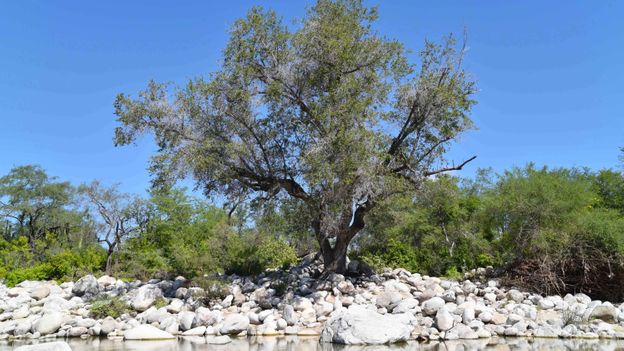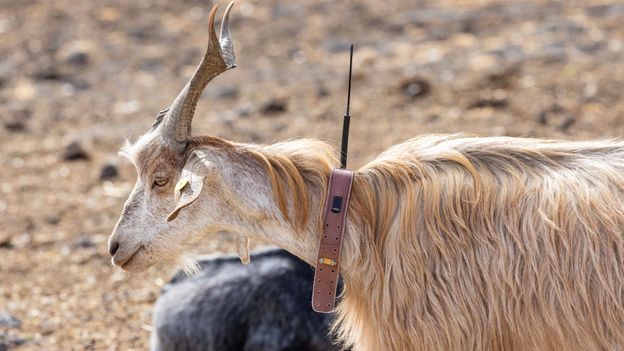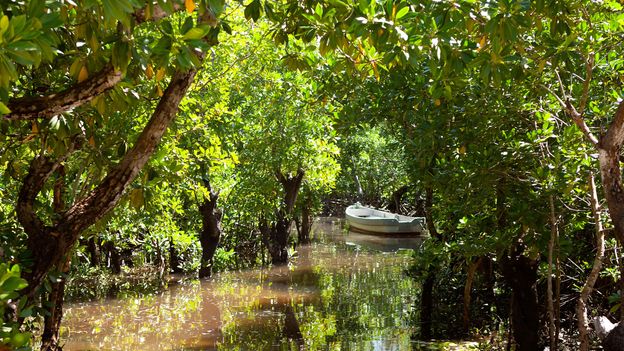While in St Catherine’s, a coastal community in south-east Jamaica, Daveian Morrison is using sargassum to produce animal feed. Morrison founded Awganic Inputs in 2018 after receiving reports of sargassum piled 15ft (4.6m) high on the beaches. “It affects local tourism and leisure activities and suffocates fish and turtle hatchlings,” says Morrison. “I figured it is time for action.”
Morrison wanted to solve two major problems in Jamaica: sargassum and the lack of affordable fodder for goats, a local delicacy. The country currently imports $15m (£11.3m) of mutton and goat meat each year. “Our goats look very lean as they do not consume enough minerals. Sargassum has many nutrients, minerals and salt,” he says.
Awganic Inputs buys sargassum from local collectors and dries, cleans and shreds the seaweed while it is still fairly fresh, before mixing it with crop biproduct to produce fodder for goats. For the more rotten sargassum, it is turned into charcoal and sold for use in cosmetics.
Awganic Inputs recently carried out a pilot project, converting 544kg (1,200lb) of sargassum into goat feed and selling it to farmers for $0.26 (20p) a kilogram. The response was very positive, Morrison says. While the coronavirus pandemic has stalled production for now, Morrison hopes to scale up and start selling cheap sargassum feed across Jamaica next year. “Many people see sargassum as a nuisance,” he says. “They are glad that something is happening with it.”
Such efforts to tackle the sargassum glut are undoubtedly small compared to the overwhelming mounds decomposing on Atlantic beaches. Goat feed, soap and biofuels won’t make much of a dent in these heaps any time soon, but they are a sign of coastal resilience – and of local economies adapting to turn a rotten mess into something of use, whatever the changing oceans wash up.
—
The emissions from travel it took to report this story were 0kg CO2. The digital emissions from this story are an estimated 1.2g to 3.6g CO2 per page view. Find out more about how we calculated this figure here.
—
Join one million Future fans by liking us on Facebook, or follow us on Twitter or Instagram.
If you liked this story, sign up for the weekly bbc.com features newsletter, called “The Essential List”. A handpicked selection of stories from BBC Future, Culture, Worklife, and Travel, delivered to your inbox every Friday.












